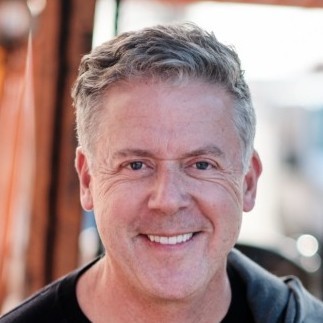Speaker Series: Transformational Change through Social Media
Check out the entire video interview with Martin Luther King, Jr. and Bernice King here. This series of posts features select interviews, speeches and presentations held as part of the LinkedIn Speaker Series. The interview below was held at our Mountain View campus last week, during the visit of Martin Luther King III.
In 1964, my Dad met Dr. Martin Luther King, Jr. He was chosen, in fact, to drive Dr. King to the airport after a rousing sermon in St. Louis. This happened just one day before the announcement that the iconic leader was to receive the Nobel Peace Prize. Such encounters with history are rare, so I was thrilled to learn, just last week, that our CEO Jeff Weiner would have an opportunity to interview Dr. King’s son and daughter during their tour of Silicon Valley.
http://www.youtube.com/watch?v=4oZxoHICaPs&fmt=22]
Dr. King’s message has influenced me and my family a great deal, and his influence on the world, especially America, cannot be overstated. Today, we are decades removed from the climate he fought to change, and there are many with no direct personal experience of the challenges that King faced and the massive obstacles in his path. During the visit of Dr. King’s two children, what really struck me was that Dr King’s legacy is still very much alive in the hearts and minds of many Americans, even a generation removed from the people he affected directly. The event drew a packed audience of over three hundred people in person who were all on the edges of their chairs, and another hundred and fifty watching it remotely via video stream from our various offices across the globe.
Dr. King’s continued relevance is undeniable, as we cannot overstate the value of preaching peace, non-violence and compassion. His son, Martin III, related a story to us about the time his father was being held in Birmingham jail, at the height of the civil rights movement. Rather than return the antagonism the guards directed at him, Dr. King chose to try and relate to them, by discussing their frustration over their low wages. He always tried to find common ground, even with people who treated him poorly. His universal empathy is a model for dissipating conflict and finding those elements that unite us.
Dr. King’s daughter, Bernice, also spoke about her father’s compassion as it pertained to leadership. He famously responded to criticism by stating that even if no one else was committed to nonviolence, he would continue to embrace it. His devotion inspired others to set aside their differences, and in bringing people together, he built synergy where there had been only discord. Carrying on her father’s philosophy of involvement, she advocated using social media to organize and affect change. Some, like Malcolm Gladwell, have speculated that social media in activism generates a sort of passivity causing many to refrain from more traditional modes of demonstration. Ms. King disagrees with this view, comparing those who participate through social media alone to those who, in the past, may have simply handed out flyers. She argues that technology has only increased the power of casual activists, without damping the energy or resolve of those more committed to a cause. She contends, in fact, that the hard-won progress of the civil rights movement could have been achieved much faster using the platforms available today, with their potential for rapid and widespread mobilization of individuals.
The question is, then, what can we do to further Dr. King’s vision, to help realize the future he struggled to foster? King was a transformative figure; he took the necessary steps to initiate the reforms he sought. But how? His children think it was all about the way he interacted with others. Martin shared that one of his father’s true skills was in creating a network of people who worked together in support of a common goal. Dr King was great at building relationships and connecting people, and leveraging those talents really helped him drive change. At LinkedIn, we strive to do much the same thing, offering professionals a framework that gives them the power to affect change for themselves, and actively engage in shaping the world around them.


